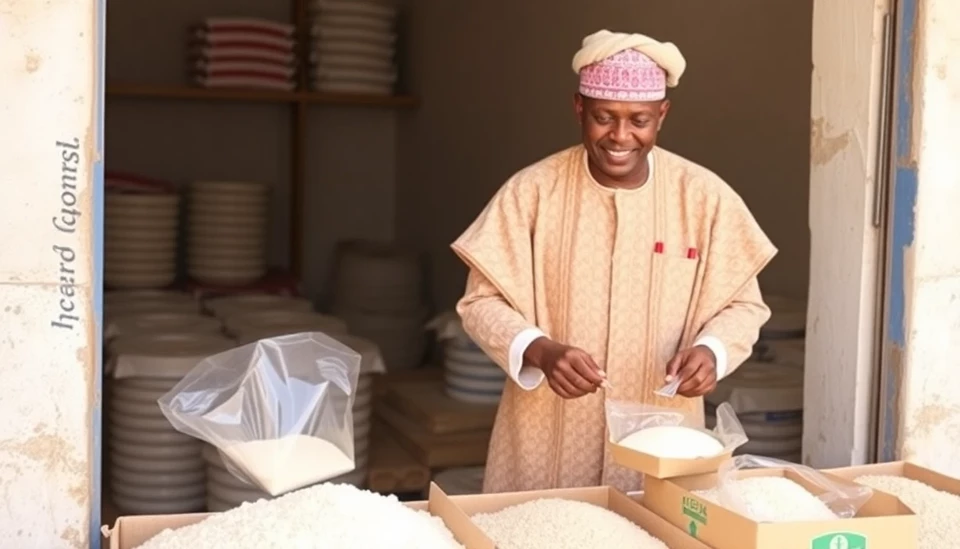
Nigeria's largest flour milling company, Flour Mills of Nigeria, is set to inject a staggering $1 billion into various segments of its operations, marking a significant move to enhance local food production and bolster the nation's economy. This ambitious investment comes in the wake of President Bola Tinubu's government pushing for self-sufficiency in food production and generating employment opportunities across the nation.
This bold initiative, announced during a significant industry conference, is touted as a foundational step towards fortifying Nigeria's agricultural sector, which has been challenged by numerous hurdles, including inflation and a volatile exchange rate. The investment will not only increase the production capacity of flour and other related products but is also aimed at transforming the agricultural landscape of Nigeria by boosting crop yields and supporting local farmers.
Flour Mills of Nigeria has already solidified its status as a key player in the agricultural sector, and this new investment signifies its commitment to further enhance the supply chain. The company plans to establish new facilities and expand existing ones to include state-of-the-art milling technology and processing plants. The expansion will create thousands of jobs, providing a much-needed boost to the local workforce, especially amid rising unemployment rates in the country.
According to the company's leadership, this funding will be allocated across several projects, including improved infrastructure, advanced agricultural practices, and increased distribution networks. The move is anticipated to play a pivotal role in achieving the federal government's goal of self-sustained agricultural production, significantly reducing imports and enhancing domestic food security.
The flour milling giant is also expected to collaborate with local farmers, establishing initiatives that will equip them with modern farming techniques to increase yield quality and quantity. By fostering partnerships within local farming communities, Flour Mills of Nigeria aims to ensure that the benefits of this investment ripple throughout the agricultural ecosystem, thereby promoting rural development and poverty alleviation.
This investment is viewed as a positive response to the recent call from President Tinubu for private sector involvement in the agricultural sector as part of his administration's broader economic policies. With the president emphasizing the need for food security and job creation, industry stakeholders are optimistic that such investments will steer Nigeria closer to its goal of reducing reliance on food imports.
Market analysts predict that the Flour Mills of Nigeria's expansion plans will catalyze similar investments from other players in the agricultural space, creating a competitive landscape that ultimately benefits consumers through improved pricing and availability of local products. As Nigeria aims to reposition itself as a hub of agricultural production in Africa, initiatives like this one will be crucial in unleashing the nation’s full economic potential.
Further discussions among industry leaders during the conference highlighted the urgent need for robust policies that support local manufacturers, including streamlined regulations, reduced tariffs on agricultural inputs, and increased access to financing for farmers and processors. The collective aim is to ensure a resilient agricultural sector capable of weathering market fluctuations and meeting the demands of Nigeria’s growing population.
In conclusion, the $1 billion investment by Flour Mills of Nigeria is not just a business expansion; it symbolizes a critical turning point in Nigeria's economic narrative, one that prioritizes local production, job creation, and sustainable agricultural practices. As the company moves forward, its initiatives could potentially lead to widespread reforms in the agricultural sector and position Nigeria as a key player in food production on the continent.
#FlourMillsNigeria #Investment #Agriculture #NigerianEconomy #FoodSecurity #JobCreation #BolaTinubu #EconomicGrowth #LocalProduction
Author: Victoria Adams




